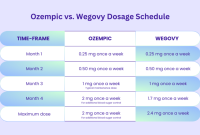Understanding “Zip Weight Loss”
The phrase “zip weight loss” evokes a sense of rapid and effortless weight reduction. It suggests a quick, streamlined process, possibly implying specific methods or products promising immediate results. Understanding the user’s search intent is crucial; they likely seek fast solutions, possibly prioritizing convenience over long-term sustainable strategies. This could lead them to explore various products and services, potentially overlooking the potential risks associated with rapid weight loss.
Interpretations of “Zip Weight Loss”
The term “zip” can be interpreted in several ways within the context of weight loss. It can refer to the speed of weight loss (“zip through the pounds”), the ease or simplicity of the method (“zip it off with our easy program”), or even a specific location or program (“zip code weight loss”). The user’s search intent likely revolves around finding a quick and easy solution, often driven by a desire for immediate visible results.
User Search Intent
Individuals searching for “zip weight loss” are primarily looking for fast and convenient weight loss methods. They may be seeking quick fixes, miracle cures, or programs that require minimal effort. This intent highlights a potential vulnerability to misleading marketing claims and potentially harmful products.
Associated Products and Services
Products and services associated with “zip weight loss” might include rapid weight loss supplements, fad diets promising quick results, detox teas, and weight loss programs emphasizing fast results over sustainable lifestyle changes. These often lack the necessary scientific backing and can pose significant health risks.
Weight Loss Methods Implied by “Zip”
The term “zip” suggests three potential weight loss methods: crash dieting, intense exercise regimens, and the use of rapid weight loss supplements. Each method has distinct advantages and disadvantages regarding effectiveness, risks, and long-term implications.
Three Weight Loss Methods
- Crash Dieting: Involves drastically reducing caloric intake, often leading to rapid initial weight loss. However, it’s unsustainable and can lead to nutrient deficiencies, muscle loss, and metabolic slowdown.
- Intense Exercise Regimens: Focuses on high-intensity workouts to burn calories quickly. While effective for weight loss, it can lead to injuries, burnout, and unsustainable lifestyle changes if not properly managed.
- Rapid Weight Loss Supplements: These often contain ingredients promising rapid weight loss, but their effectiveness and safety are often questionable. Many lack scientific evidence and can have adverse side effects.
Comparison of Methods

Crash dieting offers rapid initial results but is unsustainable and risky. Intense exercise can be effective but requires careful planning to avoid injury. Supplements often lack scientific backing and may pose health risks. Sustainable, long-term weight loss strategies combining balanced nutrition and moderate exercise are generally safer and more effective.
Marketing and Advertising of “Zip Weight Loss” Products
Marketing campaigns for “zip weight loss” products often exploit the desire for quick results. They frequently use catchy slogans and visually appealing imagery to attract consumers.
Marketing Slogans
- Zip into your dream body!
- Zip away those extra pounds!
- Zip weight loss: Fast results, effortless approach.
Radio Advertisement Script
(Sound of a zipper quickly closing) Announcer: Tired of those extra pounds? Zip Weight Loss can help you shed those unwanted kilos quickly and easily! Our revolutionary program combines a simple diet plan with effective exercises. Visit our website or call now for a free consultation! (Sound of a zipper quickly closing)
Visual Representations
Images used to market “zip weight loss” often depict individuals transforming rapidly from overweight to fit. These might include before-and-after photos showcasing dramatic weight loss, or imagery of someone effortlessly zipping up a smaller garment, symbolizing quick and easy weight loss. Another image could show a person zipping up a healthy lifestyle, implying quick and easy transition to a healthier life.
Potential Misconceptions and Risks
Rapid weight loss solutions often lead to misconceptions about the ease and safety of weight loss. Understanding the realities and associated health risks is essential for making informed decisions.
Misconceptions, Realities, Risks, and Alternatives

| Misconception | Reality | Health Risk | Safe Alternative |
|---|---|---|---|
| Rapid weight loss is always healthy. | Rapid weight loss can lead to nutrient deficiencies and metabolic slowdown. | Malnutrition, muscle loss, fatigue | Gradual weight loss of 1-2 pounds per week. |
| Detox teas cleanse the body and promote weight loss. | Detox teas are often ineffective and can have harmful side effects. | Dehydration, electrolyte imbalance, digestive issues | Balanced diet and increased water intake. |
| Weight loss supplements are a shortcut to weight loss. | Many supplements lack scientific evidence and can have adverse effects. | Liver damage, heart problems, interactions with medications | Healthy diet and exercise. |
| Spot reduction is possible. | You cannot target fat loss in specific areas. | Unrealistic expectations, unhealthy dieting | Overall weight loss through diet and exercise. |
Responsible Weight Loss Practices
Sustainable weight loss involves a holistic approach combining diet, exercise, and mindful lifestyle changes. Prioritizing gradual weight loss is crucial to avoid health risks.
Responsible Weight Loss Strategies
- Consult a healthcare professional before starting any weight loss program.
- Set realistic, achievable goals.
- Focus on sustainable lifestyle changes, not quick fixes.
- Prioritize whole, unprocessed foods.
- Incorporate regular physical activity into your routine.
Incorporating Strategies into a Daily Routine, Zip weight loss
Start by scheduling regular meals, incorporating exercise into your daily routine (even short walks), and gradually replacing unhealthy snacks with healthier options. Track your progress, adjust your plan as needed, and remember consistency is key.
The Role of Diet and Exercise
A balanced diet and regular exercise are fundamental to achieving and maintaining healthy weight loss. They work synergistically to create a calorie deficit and improve overall health.
Role of Diet
A balanced diet rich in fruits, vegetables, lean protein, and whole grains provides essential nutrients while keeping calorie intake in check. Limiting processed foods, sugary drinks, and unhealthy fats is also crucial.
Sample Weekly Meal Plan

This is a sample plan and individual needs may vary. Consult a nutritionist for personalized guidance.
- Monday: Oatmeal with berries, grilled chicken salad, baked salmon with roasted vegetables.
- Tuesday: Scrambled eggs with spinach, lentil soup, turkey breast with quinoa.
- Wednesday: Greek yogurt with fruit, chicken stir-fry, vegetarian chili.
- Thursday: Smoothie with fruits and vegetables, tuna salad sandwich on whole-wheat bread, chicken breast with sweet potato.
- Friday: Whole-wheat toast with avocado, lean ground beef with brown rice, vegetable pasta.
- Saturday: Pancakes with fruit, grilled chicken Caesar salad, baked cod with asparagus.
- Sunday: French toast with berries, roast chicken with roasted potatoes and carrots, vegetarian lasagna.
Effective Exercise Routines
- Beginner: 30-minute brisk walks, 3-4 times a week.
- Intermediate: 30-45 minutes of cardio (running, cycling) and strength training, 3-4 times a week.
- Advanced: 60-90 minutes of high-intensity interval training (HIIT) and strength training, 4-5 times a week.



